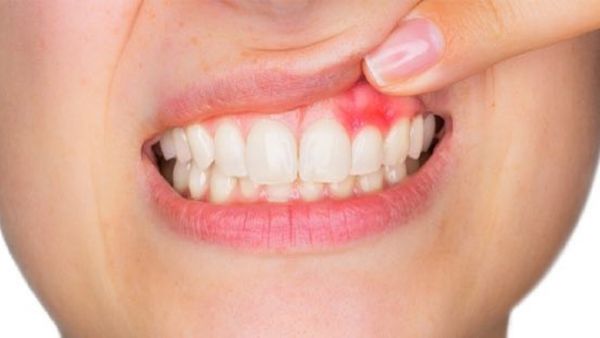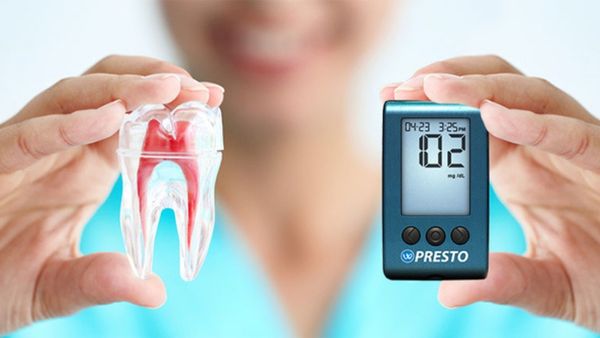Just In
- 2 hrs ago

- 2 hrs ago

- 5 hrs ago

- 6 hrs ago

Don't Miss
- News
 Railways To Run Special Trains For Elections In Karnataka
Railways To Run Special Trains For Elections In Karnataka - Movies
 Heeramandi Screening: Salman Khan's Presence Hinting At Sanjay Leela Bhansali's Inshallah Being Revived?
Heeramandi Screening: Salman Khan's Presence Hinting At Sanjay Leela Bhansali's Inshallah Being Revived? - Automobiles
 Bajaj To Offer Chetak Electric Scooter At Lower Price Point: All Details Here
Bajaj To Offer Chetak Electric Scooter At Lower Price Point: All Details Here - Sports
 Bangladesh vs Zimbabawe: Will Shakib Al Hasan Play Home T20 Series In May Or Not?
Bangladesh vs Zimbabawe: Will Shakib Al Hasan Play Home T20 Series In May Or Not? - Technology
 Qualcomm Reveals Snapdragon X Plus Chip for Laptops: 10 Core CPU, On-Device AI, & Much More
Qualcomm Reveals Snapdragon X Plus Chip for Laptops: 10 Core CPU, On-Device AI, & Much More - Education
 Kerala SSLC Results 2024: Number of Ways you can check the Results
Kerala SSLC Results 2024: Number of Ways you can check the Results - Finance
 Gold Prices Ayodhya: In Ram-Janma-Bhumi, 24carat Falls By Rs 380 In 10-Grams, Drops By Rs 3,800 In 100-gram
Gold Prices Ayodhya: In Ram-Janma-Bhumi, 24carat Falls By Rs 380 In 10-Grams, Drops By Rs 3,800 In 100-gram - Travel
 Escape to Kalimpong, Gangtok, and Darjeeling with IRCTC's Tour Package; Check Itinerary
Escape to Kalimpong, Gangtok, and Darjeeling with IRCTC's Tour Package; Check Itinerary
Expert Article: Diabetes And Oral Health; How Does Diabetes Affect Our Mouths?
Diabetes mellitus is a disease of abnormal protein, fat, and carbohydrate metabolism that causes acute and long-term complications due to a complete or partial lack of insulin.
Types of diabetes:
●
Type
1:
results
from
an
absolute
lack
of
insulin.
●
Type
2:
results
from
insulin
resistance
and
an
insulin
secretory
defect.
●
Gestational
diabetes:
a
condition
of
abnormal
glucose
tolerance
during
pregnancy.
Diabetes significantly increases the risk of death and reduces life expectancy.

Diabetes affects all parts of the body, like the skin, gut, kidney, heart, nervous system, eyes, and also mouth. Dentists play a pivotal role in monitoring the blood sugar levels of a patient and catering to their rampant dental needs.
Let's understand how diabetes affects our mouths.
Diabetics are more likely to experience dental issues for the following reasons:
1.
Increased
salivary
sugar
levels
due
to
high
blood
sugar
provide
a
haven
for
cavity-forming
bacteria.
2.
Medication
for
diabetes
lowers
oral
saliva
production.
A
dry
mouth
exposes
the
enamel
to
various
acids
in
foods
and
beverages,
resulting
in
cavities.
Oral Signs of Diabetes:
●
Burning
Mouth
Syndrome:
A
persistent
burning
of
the
mouth,
without
any
visible
lesions,
is
typical
of
diabetes.
●
Candidiasis:
this
is
a
fungal
infection
of
the
mouth;
it
appears
as
milky
white
lesions
on
the
cheeks,
gums,
and
tongue.
●
Dental
Caries:
it
is
a
dental
term
for
tooth
decay
and
cavities
●
Gingivitis
and
Periodontitis:
The
inflammation
of
the
gums
leads
to
redness
and
swelling.
Eventually,
there
is
a
loss
of
tooth
support.
●
Lichen
Planus:
it
is
an
autoimmune
disease
of
the
mouth.
They
appear
as
reddish
lesions
with
whitish
lines.
These
are
painful
with
burning
sensations.
●
Salivary
Dysfunction,
Taste
Dysfunction,
and
Xerostomia:
The
salivary
glands
malfunction,
causing
less
salivary
flow
and
impaired
taste.

How to maintain your oral health as a diabetic:
1.
Regular
blood
sugar
tests
to
monitor
any
unwarranted
changes.
2.
Diet
and
lifestyle
modifications:
reduce
foods
that
spike
blood
sugar
and
increase
physical
activities
like
walking
and
yoga.
Drink
ample
amounts
of
water
to
keep
the
mouth
hydrated.
Try
to
brush
twice
daily
and
floss
regularly.
3.
Periodic
dental
visits:
a
dentist
can
identify
a
diabetic
mouth.
They
counsel
you
to
maintain
good
oral
hygiene.
4.
Scaling
and
polishing:
teeth
cleaning
to
remove
plaque
and
calculus
to
keep
gingivitis
at
bay.
5.
Filling
and
root
canal
treatment:
a
diabetic
is
more
prone
to
flare-ups
from
tooth
infections;
it
is
mandatory
to
get
the
cavities
treated
to
prevent
pus
and
swelling.
Conclusion
Maintaining good oral health will also help you control your diabetes and avoid health issues linked to diabetes. If you have dental problems that lead to tooth loss, sticking to a healthy meal plan to help you better manage your diabetes will be more challenging.
-
 healthExclusive: World Oral Health Day 2024: Doctor Shares How Diabetic Patients Can Maintain Their Oral Health
healthExclusive: World Oral Health Day 2024: Doctor Shares How Diabetic Patients Can Maintain Their Oral Health -
 healthWhat Is VIP? It Is Not What You Think! This One Is Connected To Blood Glucose, Here's What You Need To Know
healthWhat Is VIP? It Is Not What You Think! This One Is Connected To Blood Glucose, Here's What You Need To Know -
 pregnancy parentingWhat Are The 4 Must Have Vitamins For Kids With Diabetes?
pregnancy parentingWhat Are The 4 Must Have Vitamins For Kids With Diabetes? -
 healthDoes This Everyday Cooking Ingredient Trigger Diabetes?
healthDoes This Everyday Cooking Ingredient Trigger Diabetes? -
 healthRoller Coaster Effect In Diabetes: Why Does My Blood Sugar Level Go Up And Down, How To Stop It
healthRoller Coaster Effect In Diabetes: Why Does My Blood Sugar Level Go Up And Down, How To Stop It -
 healthSinger Shakira Loves These 2 Indian Sweets! How To Make It Diet-Friendly?
healthSinger Shakira Loves These 2 Indian Sweets! How To Make It Diet-Friendly? -
 healthWorld Diabetes Day 2023: 3 Weird Things That Can Put You At Risk Of Developing Diabetes
healthWorld Diabetes Day 2023: 3 Weird Things That Can Put You At Risk Of Developing Diabetes -
 healthWorld Diabetes Day 2023: Daily Habits That Make One At Risk Of Diabetes
healthWorld Diabetes Day 2023: Daily Habits That Make One At Risk Of Diabetes -
 wellnessWorld Diabetes Day 2023: Avoid These Common Mistakes When Testing Blood Sugar Levels
wellnessWorld Diabetes Day 2023: Avoid These Common Mistakes When Testing Blood Sugar Levels -
 healthDiwali 2023: Kalakand Recipe For Diabetic People; It Is Sugar-Free & Keto-Friendly
healthDiwali 2023: Kalakand Recipe For Diabetic People; It Is Sugar-Free & Keto-Friendly -
 healthHow Poor Air Quality During Can Raise Your Diabetes Risk
healthHow Poor Air Quality During Can Raise Your Diabetes Risk -
 healthWhip Up These 3 Diwali Sweets For Your Diabetic Mom Over 40
healthWhip Up These 3 Diwali Sweets For Your Diabetic Mom Over 40


 Click it and Unblock the Notifications
Click it and Unblock the Notifications



